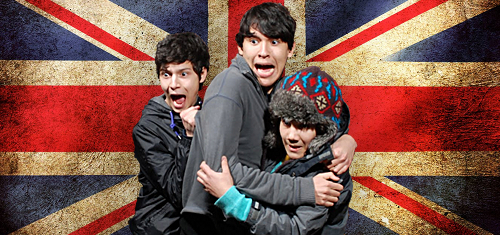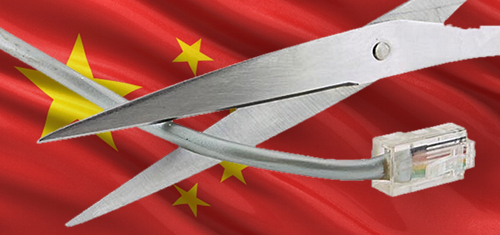Here’s a look back at the European and Asian gambling stories that most piqued our interest in 2015…
 UK CONSOLIDATION
UK CONSOLIDATION
There were a lot of major stories in the UK market this year but they all shared a common theme: terrified operators realizing that the government was bent on bleeding them dry. leading operators to conclude that banding together was the only way to survive.
Throughout the year, the major public companies’ quarterly earnings reports expressed how deeply the new 15% online point of consumption tax – plus increased tax on fixed-odds betting terminals for companies with retail operations – was cutting into the bottom line.
The bookies’ solution was the age-old belief that two can live as cheaply as one. Consolidation became the order of the day, with Ladbrokes marching down the aisle with Gala Coral, Paddy Power knocking up Betfair and GVC picking up Bwin.party at a car boot sale
Investors licked their lips at the thought of these companies realizing tens of millions of pounds of ‘synergies’, which has a much nicer ring to it than ‘hundreds of redundancies’.
The companies that were already underperforming will welcome the distraction the merger process will provide. Analysts will be forced to compare apples to oranges, giving the companies a year or two’s grace before their true performance can be accurately measured.
Companies that hadn’t yet found a dance partner started looking like drunk guys when the club lights come on after last call and they haven’t yet pulled. All except William Hill, who kept insisting that they could go toe-to-toe with any of the new behemoths, and 888, who rejected Hills’ advances only to have their own pickup line rejected by Bwin.party.
 666BET GOES TO HELL
666BET GOES TO HELL
Online betting operator 666Bet’s arrival on the UK scene was audacious enough that it made this site’s list of the top gambling stories of 2014. But like Icarus, this impressive debut morphed into a cautionary tale.
In March, the UK Gambling Commission announced it had suspended the operating licenses of MetroPlay Ltd, which operated the 666Bet and MetroPlay sites, due to their owners being “unsuitable to carry on” their licensed activities. Within a week, word filtered out that Paul Bell, a director of the Isle of Man-based 666Bet, had been arrested in connection with a money laundering and tax fraud ring.
Months went by and it became clear that the sites wouldn’t be back online anytime soon. Worse, 666Bet and MetroPlay customers went public with complaints that the sites wouldn’t let them withdraw their account balances. MetroPlay management claimed all was well and eventually some payouts were permitted, but these stopped after MetroPlay’s chairman admitted there wasn’t enough money to make all customers whole.
By July, the Court of Alderney ordered MetroPlay to be placed in compulsory liquidation, leaving customers wondering if they’d ever be reunited with their deposits. The numerous sports franchises that had entered into betting partnerships with 666Bet were left scrubbing any trace of this association from the public record.
Anti-gambling campaigners like to claim that the highway to hell is paved with wagering slips. In 666Bet’s case, they proved to be right.
 AUSTRALIA IN-PLAY
AUSTRALIA IN-PLAY
Technology trumped law in Australia, where William Hill’s local offshoot came up with an ingenious workaround for the country’s longstanding but inane prohibition of online in-play sports betting. The Click To Call app (since rechristened In-Play) utilized smartphone voice recognition technology to allow bettors to confirm wagers placed via the app, which the company said was the same as legally permissible telephone in-play wagers.
The gambit was an immediate hit, as Hills’ in-play wagering turnover tripled following the app’s introduction. Not wanting to get left behind, local rivals Bet365 and Ladbrokes quickly released me-too apps and there was much rejoicing by punters and online gambling execs.
However, local authorities slammed the apps as an illegal according to the 2001 Interactive Gambling Act and Ladbrokes – which had only recently entered the Aussie market – was suitably scared into disabling its app. Hills and Bet365 were made of sterner stuff and decided to brave it out based on their belief that they were following the letter of the law (if running roughshod over the spirit of that law).
Fortune favored the brave as the federal police eventually declared they had better things to do than investigate whether or not Hills’ legal hair-splitting was kosher. But Hills’ victory could be short-lived, as the brouhaha prompted Australia’s government to accelerate plans to review the IGA, and domestic operators are pressing for a more ironclad prohibition that includes such technological tweaks.
 MACAU CAN’T FIND BOTTOM
MACAU CAN’T FIND BOTTOM
The dominant casino industry story of 2015 was Macau’s unending gaming revenue decline. The slump began midway through 2014 after China’s economy went south and authorities in Beijing ramped up their crackdown on corruption among public officials.
Many analysts expressed confidence that the Macau market would rebound in the second half of 2015 but this proved to be a case of whistling through the graveyard. The 20% year-on-year declines posted in the final months of 2014 reached the high-30s in 2015, and November’s monthly gaming revenue total was the lowest in five years.
The opening this year of two new mega-resorts – Galaxy Macau’s Phase 2 and Melco Crown’s Studio City – did little to boost the market. There are three more monster properties – Wynn Resorts’ Wynn Palace, Sands China’s Parisian Macao and MGM China’s MGM Cotai – set to open in 2016 but no one is being bold enough to predict they are the cure for Macau’s ills.
JUNKETS CIRCLE THE WAGONS
Macau’s junket operators were particularly hard hit by the market’s implosion, which has disproportionately affected the VIP gambling business. An estimated 34 junket operators closed their doors in 2014 and the bloodletting continued unabated in 2015 as even the VIPs who still gamble in Macau are proving unwilling or unable to honor their junket loans.
Junkets were further rocked after an internal theft by a staffer at Dore Entertainment Co Ltd, the second major heist of junket investor funds in as many years. The ensuing panic caused many junket investors to withdraw their capital, exacerbating the liquidity crunch caused by Beijing’s crackdown on underground banking networks and UnionPay card fraud.
Just before Christmas, Melco Crown poked another hole in the junket balloon after an analyst said the property – which opened in October without a single VIP table – could introduce some VIP tables early in the new year, but these would be run directly by the casino in order to cut out the junket middle man and maximize returns.
These and other conditions caused many Macau junkets to accelerate plans to shift business to other regional casino markets. Casinos in the Philippines, Cambodia, Australia and Vietnam have proven popular alternate destinations.
 LAWRENCE HO POPS PRIMORYE’S CHERRY
LAWRENCE HO POPS PRIMORYE’S CHERRY
In addition to offering a relatively safe harbor from Beijing’s prying eyes, most Asian casino jurisdictions offer significantly lower tax rates on gambling revenue, thereby allowing junkets to keep more of their VIP winnings.
The lowest tax rate in the Asia-Pacific region also happens to be its newest. After repeated postponements, the Lawrence Ho-backed Tigre de Cristal became the first casino to launch in Russia’s Primorye region near Vladivostok. With the first of the market’s other three confirmed casino projects not set to open until 2017 at the earliest, Tigre de Cristal will have Primorye all to itself for the coming year.
Tigre de Cristal officials say they pay an effective tax rate of 1% of gaming revenue, a literal sliver of Macau’s 39% rate and lower even than Nevada’s much lauded 6.75% rate. Macau may boast proximity to China’s heavily populated southern provinces but Primorye is close to northeastern China and South Korea.
Initial reaction to Tigre de Cristal’s opening has been positive, with its 121-room hotel booked solid into the new year. The real test will come once the novelty wears off and the casino’s real drawing power will be revealed. Then again, an even greater test could be surviving the whims of Vladimir Putin, who could wake up tomorrow and decide Primorye was now a gaming-free zone.
 CHINA’S ONLINE LOTTERY BAN
CHINA’S ONLINE LOTTERY BAN
The Chinese government’s distaste for online gambling is definitely not a state secret but Beijing did allow its citizens to partake of the state-sponsored online sports and welfare lotteries. While never officially legalizing the practice, Beijing did authorize two companies – including Shenzhen’s 500.com — to engage in a pilot program for online lottery sales.
Problem was, a host of other companies began offering their own online sales platforms and a bunch of unscrupulous provincial lottery administrators neglected to register all of these sales while pocketing the difference. One GM of an online lottery operator was accused of diverting a whopping $322m into his personal accounts.
This personal enrichment program was exposed after Beijing launched a surprise audit of provincial lottery administrators. The next step was a ‘temporary’ suspension of all online sales – including those two authorized operators – which took effect on March 1 and persists to this day.
The suspension has crippled 500.com, which reported zero income for two straight quarters. In December, 500.com purchased an online payment processor in a bid to generate some revenue before it exhausted its cash reserves. Lottery operator DJI Holdings announced similar plans to diversify its business beyond the lottery game. Even the state-run People’s Daily website took a financial hit from the loss of lottery sales.
China watchers continue to insist that Beijing does intend to eventually authorize an official online lottery market, but it’s anybody’s guess when that official word might come down. In the meantime, Beijing will continue to press the point that it decides what its citizens do online, and anyone who objects to this policy can take it up with the Ministry of Public Security.
ROYAL FUN CLUB’S HEADY MIX OF ONLINE LIVE DEALERS AND ANAL LUBE
This final story was in no way earth shattering in terms of its scale, but the most wackadoo online gambling story of 2015 came courtesy of Royal Fun Club, a Cambodia-based, Philippines-licensed online gambling site. This fall, the site released a two-minute video pitch aimed at convincing Malaysian Muslims that, while paradise might offer the opportunity to hook up with 72 virgins, Royal Fun Club was offering anal sex with Japanese porn stars in the here and now.
There’s little to be said about the truly mind-boggling video that can match the experience of actually watching it, so please, do yourself a favor and check it out here. And please, Royal Fun Club, make another in 2016.
